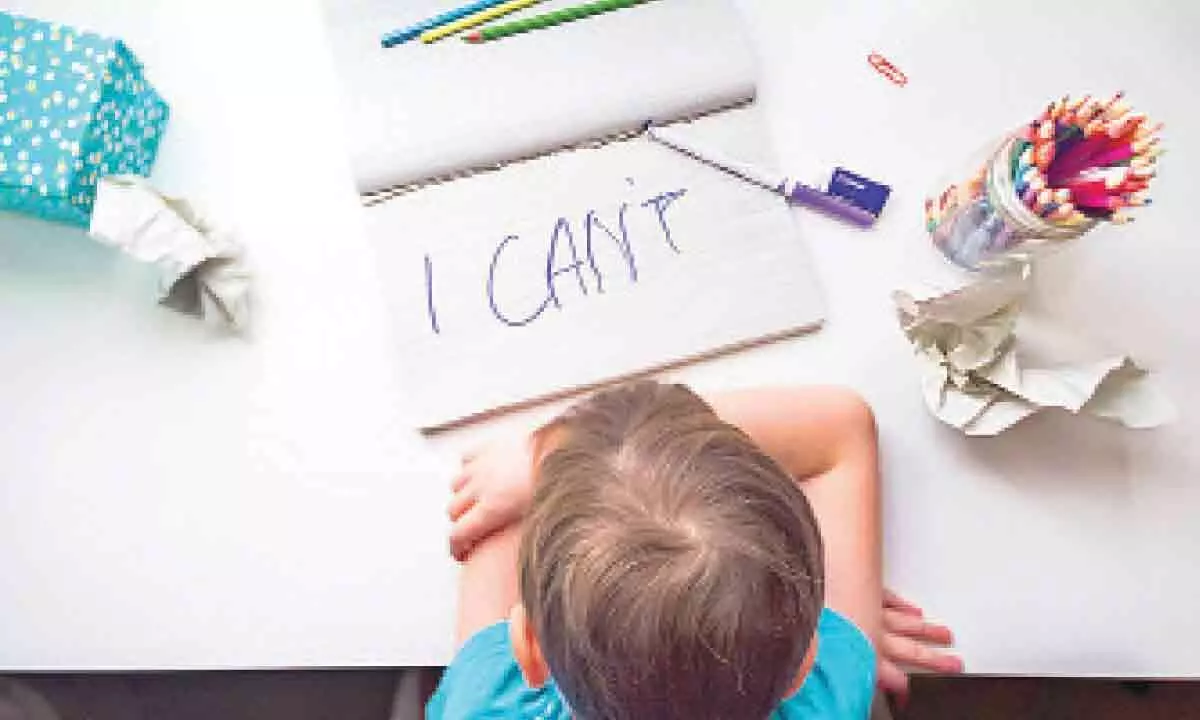Learned Helplessness: how to overcome it

Dr C Veerender, Counselling Psychologist, talks about how to overcome this obstacle learned helplessness
In animals, learned helplessness occurs when an animal is repeatedly subjected to an aversive stimulus that it cannot escape. Eventually, the animal will stop trying to avoid the stimulus and behave as if it is utterly helpless to change the situation. Even when opportunities to escape are presented, this learned helplessness will prevent any action. Learned helplessness occurs when a person who has experienced repeated challenges believes that he or she has no control over his or her situation. The person then gives up trying to make changes and accepts his or her fate.
The same situations are experienced by children more as well; when people feel that they have no control over their situation, they may begin to behave in a helpless manner. This inaction can lead people to overlook opportunities for relief or change. In our case study, though she is a professor at a university, she tried all methods of bringing the situation normal by putting with her in-laws, her parents, his siblings, and his friends and all methods, they all boomeranged to her life has become more critical and pathetic, then lead her to left it to the fate. Fate always worsens things if you don’t try to improve them.
Recently, a tenth-grade student (X class) was brought in by his parents, who expressed numerous concerns about his academic performance. They reported that he displayed a lack of interest in studying, rarely put in effort, and seemed disengaged in the learning process. Teachers at school consistently voiced their concerns about his behaviour.
After a few sessions, it became evident that the student had a learning disability affecting his logical thinking abilities. This was previously unknown to both the student and his parents. Overcoming this obstacle proved challenging, especially when it came to making the parents understand the nature of his difficulties. However, through communication and explanation, we successfully conveyed the learning disability to the parents.
Once the parents were aware, we worked collaboratively to identify subjects where the student could excel and where his learning strengths lay. We gradually observed an improvement in his performance, particularly in subjects other than mathematics. The process involved addressing the learning challenges he faced and helping him progress in his education, which in turn helped him gain trust and confidence.
Learned helplessness may also contribute to feelings of anxiety and may influence the onset, severity, and persistence of conditions such as generalized anxiety disorders.
Causes of Learned Helplessness
People may feel that they have little to no control over the situation. Because of the lack of control, people may feel helpless and unmotivated to take action.
Common causes that can lead to learned helplessness include:
• Abuse • Childhood neglect • Difficult • Domestic violence • Natural disasters • Trauma
Overparenting can also contribute to the development of learned helplessness in children. Children not allowed to try things independently may develop a poor sense of personal agency. Instead of trying, they believe that they are unable to do things and do not put forth any effort.
How to overcome LHS: 1. Psychotherapy with the help of CBT 2. Self-care strategies include exercise, a timely good diet, good sleep, and a regular healthy routine. 3. Support from friends, family members, and social groups. 4. Setting realistic goals. 5. See the world and learn; failures are common. One has to learn from failure and keep trying to achieve what we want.














